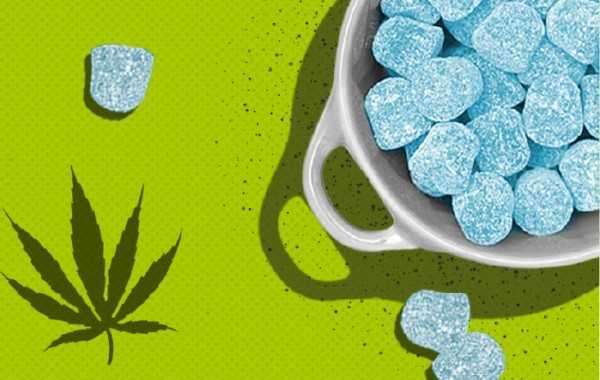If you or a loved one has become addicted to cocaine, you should know what to expect during and after the withdrawal period. This article will discuss the common symptoms of cocaine withdrawal and the treatments available. We will also discuss the symptoms of sleep disturbance, cravings, and other common signs of addiction. If you're suffering from cocaine withdrawal, you should take care of yourself so that you can get through the difficult time without relapsing.
Symptoms of cocaine withdrawal
Although symptoms of cocaine withdrawal will last only a few days, they can persist for weeks for long-term users. They occur because the brain has become used to the large amounts of dopamine cocaine releases and the lack of dopamine is hard on the body. Symptoms of cocaine withdrawal can also be more intense for people who use large doses of the drug or people who have polysubstance dependence, which means their withdrawal symptoms are linked to several drugs.
The most common physical symptom of cocaine withdrawal is an intense craving for the drug. These cravings are very intense and painful, and many patients may experience fever during withdrawal. Other physical symptoms of cocaine withdrawal include chills, sweating, and dehydration. Because of the unique nature of the cocaine withdrawal process, inpatient treatment is highly recommended for those suffering from chronic cocaine abuse. Symptoms of cocaine withdrawal may also include insomnia, restlessness, and mood swings.
Treatment options
There are many different cocaine withdrawal treatment options available, including medication, counseling, and bed rest. The most effective treatment for the physical symptoms of cocaine withdrawal is to treat the underlying problem. Insomnia, poor concentration, and depressed moods are all possible side effects of withdrawal. Withdrawal symptoms are so severe that it's possible to become suicidal. Asking for help during this time will make the process less difficult and decrease the risk of relapse.
Inpatient rehabilitation involves a closely monitored detoxification process. The inpatient treatment is ideally suited to patients who have severe cocaine addiction or co-occurring medical conditions. On-site physicians and counselors will provide ongoing care to ensure that patients get the right treatment. In-patient treatment also involves the prescription of medications to ease withdrawal symptoms. Psychotherapy and community groups are also useful tools in the fight against cocaine addiction. 12-step groups surround recovering addicts with non-using peers who offer emotional support.
Cravings
Drug withdrawal symptoms vary according to the person's level of addiction, but most people experience a similar progression. The initial "crash" is characterized by mood swings, anxiety, insomnia, and intense cravings for the drug. As the body adjusts to its absence, cravings become more intense and relapse may occur. The first phase of withdrawal typically lasts between one and three days, while the subsequent phases may last as long as four weeks, and may even last longer for people who are severely addicted.
When someone quits cocaine use, they usually experience a crash lasting a day or two. Symptoms of a cocaine crash include anxiety and depression. During this time, cravings can make people seek the drug. They may also develop insomnia, which can lead to a vicious cycle. To make the situation worse, the cravings will often recur if the person does not stop using cocaine. However, it is possible to overcome cravings and cope with the symptoms with the help of therapy.
Sleep disturbances
Sleep disturbances after cocaine withdrawal can be a major problem for individuals battling addiction. The effects of sleep disturbances from cocaine use can be detrimental for the recovering addict, and are often linked to relapse. Sleep disturbances occur when the brain doesn't achieve the proper amount of restful sleep, a key part of the circadian rhythm. In addition, cocaine use may alter the human circadian rhythm, altering the amount of time that the rapid eye movement (REM) cycle sleeps.
However, while the effects of sleep disruptions after cocaine use are temporary, the long-term effects of this substance are not. While it is possible to reverse these effects, the long-term damage from cocaine use may continue into the early withdrawal phase. In such cases, continued abstinence may be beneficial to the recovering body. Although there are no medications available to reverse the effects of cocaine, continued abstinence may improve sleep quality, duration, and time in REM.
Depression
The relationship between cocaine withdrawal and depression is complex. Those who abuse cocaine over a long period of time are at risk for developing serious depression and the physical symptoms associated with this condition. In addition, cocaine users tend to experience more intense cravings than those who don't abuse the drug. A large body of research has linked the drug to depression, a major risk factor for long-term cocaine users. The following article explores the relationship between cocaine withdrawal and depression.
The first thing to know about cocaine addiction is that it directly alters the brain. It increases dopamine and serotonin levels, causing a period of euphoria and a subsequent recovery period when moods are usually worse than normal. Although most people are aware of the short-term effects of cocaine, few understand the long-term consequences of cocaine abuse. Cocaine addiction is a long-term issue, requiring sustained treatment.u







